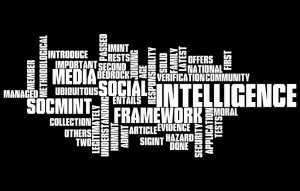«Die Gegenstände enthalten die Möglichkeit aller Sachlagen.»
(Objects contain the possibility of all states of affairs.)
Wittgenstein: Tractatus, 2.014
«Causa latet, vis est notissima fontis.»
(The cause is hidden, but the effect is well-known.)
Ovid: Metamorphoses, IV.287
I. Prolegomena
It may well be a platitude to recall that – in the words of Niels Bohr and others – “prediction is very difficult, especially about the future.”[i] Nevertheless, it also is a fundamental tenet of causality which is far too often not allowed for adequately by those who analyze and comment on the origination of what in the following will be labeled ‘events’. Hence, various dissonant notions, such as those considering events (or entities) to be self-caused (‘causa sui’) and, thus, causes themselves, determined, meaning that they are effects, or even uncaused (e.g. the ‘cosmological argument’), are poles apart, both hermeneutically and heuristically.
But even if we subscribe to the literally unoriginal and rather oversimplified perception that one thing leads to another, notwithstanding the intricate ‘mechanics’ of cause and effect, how do we best make sense of contingency? And how about the interdependency of contingency, being, according to Thomas Aquinas, a potentiality arising from matter, and necessity, which “results from form, because whatever is consequent on form is of necessity in the subject” then?[ii] Are the genesis and dynamics of events, their initiators and catalysts, are at all inevitable, knowable, observable, measurable and, ultimately, predictable? Former CIA and NSA director Michael Hayden argues that, referring to namely social unrest and political conflict, oftentimes they are not.[iii] So when ‘connecting the dots’ does, except for criminologists, not necessarily add up to a sound understanding of how situations ‘boil over’ and crises emerge, scrutinizing a series of isolated events, or dots, might just not prove purposeful to grasp the actual nexus altogether.[iv]
Being caught in its own terminological arbitrariness, it is this blatant lack of theoretical clarity and practical applicability which meanwhile leads to a quite obvious, yet unpleasant effect: the weakening of the explanatory power of what has again and again been called ‘triggering events’ and their value for the early warning and forecasting, predictability and preventability of critical social and political phenomena.
Contesting Brian Rathbun’s dig at predictive foreign policy analysis according to which “[w]e can only work out explanations well after the fact when we know what was going on the ground, what people were thinking, etc.”, John Schuessler rightly remarks: “What analytical exercise worth its salt yields no predictions whatsoever? Every decision to undertake – or forego – a policy rests on some sort of expectation about the consequences of action or inaction. […] The problem, in short, is not prediction, but prediction without consequences. Predictions should not only be encouraged, but used to hold analysts accountable.”[v]
In that spirit, this essay aims at shedding light on the very fundamental configuration of events and recommends a definitional frame of reference in order to better calibrate correlation and causation for predictive analysis, and to curtail the unbearable popular obsession of blaming singular causes for complex effects. It consequently argues that triggering events are, although not root causes themselves and solely within the scope of political conflict, a distinct manifestation of the so-called ‘fallacy of mono-causality’, that is to say of an analytical bias, and are therefore of only limited significance to the unfolding of respective events.
[i] Cf. http://www.economist.com/blogs/theinbox/2007/07/the_perils_of_prediction_june
[ii] Pegis, A. C. (1945) Basic Writings of Saint Thomas Aquinas. New York: Random House. p. 833
[iii] Cf. http://edition.cnn.com/2011/OPINION/02/08/hayden.egypt.intelligence/index.html
[iv] Cf. http://cryptome.org/nara/state/state-03-1022.pdf
[v] Cf. http://nationalinterest.org/blog/the-skeptics/analysis%E2%80%94what-it-good-5807





Post a Comment